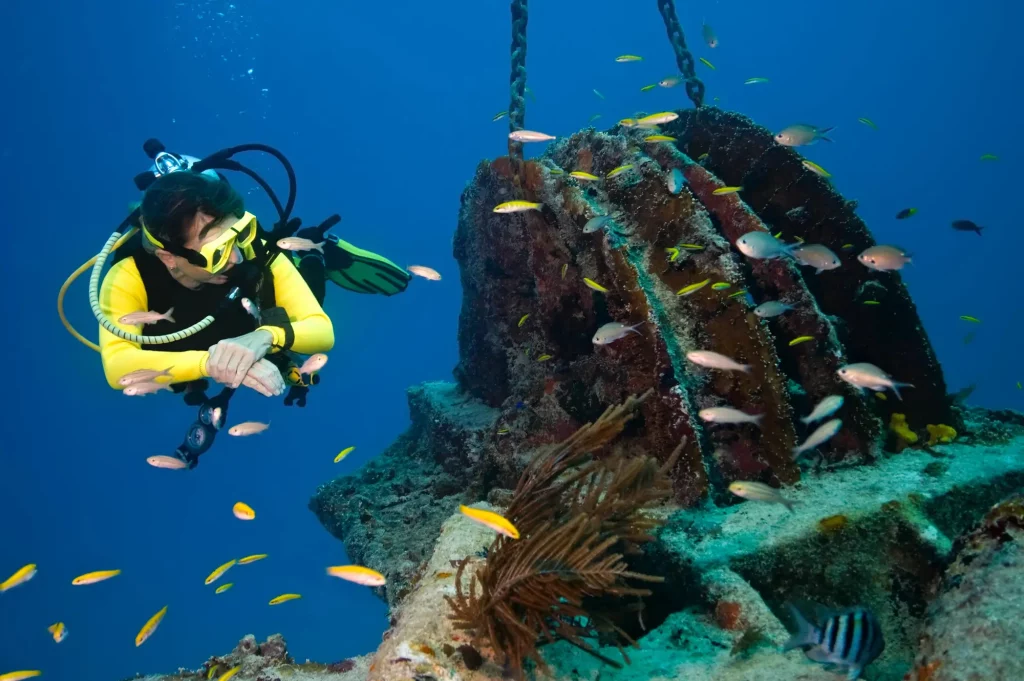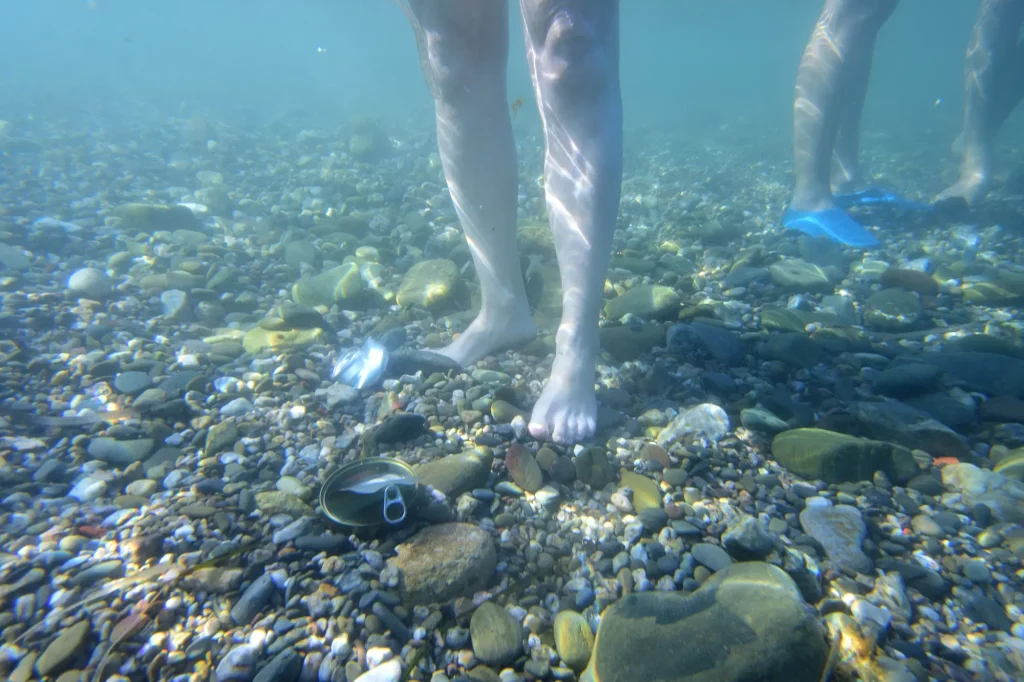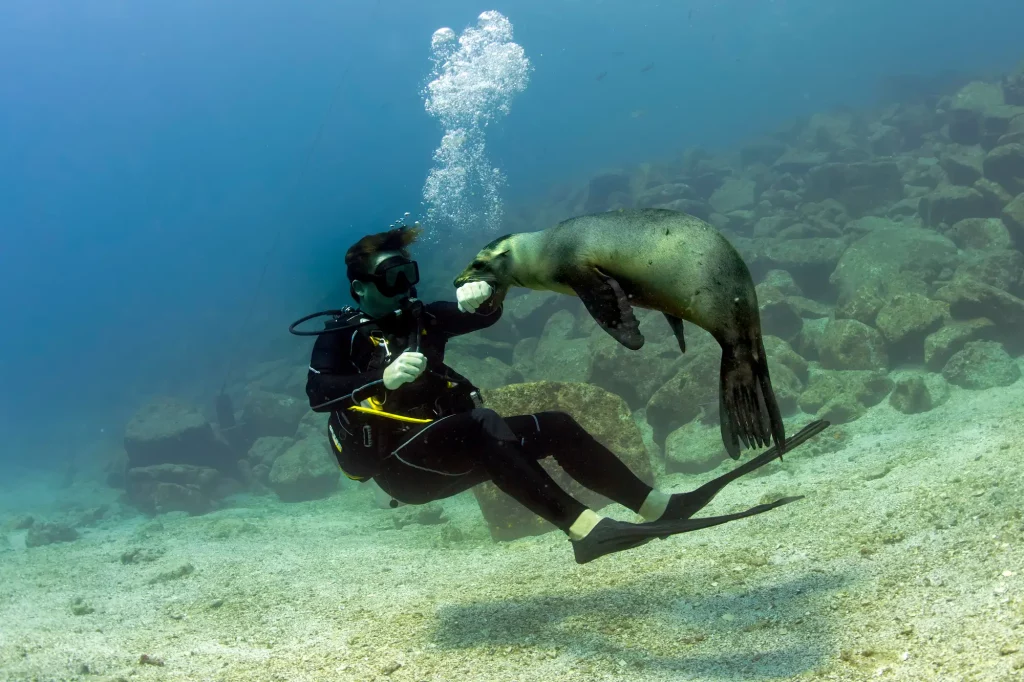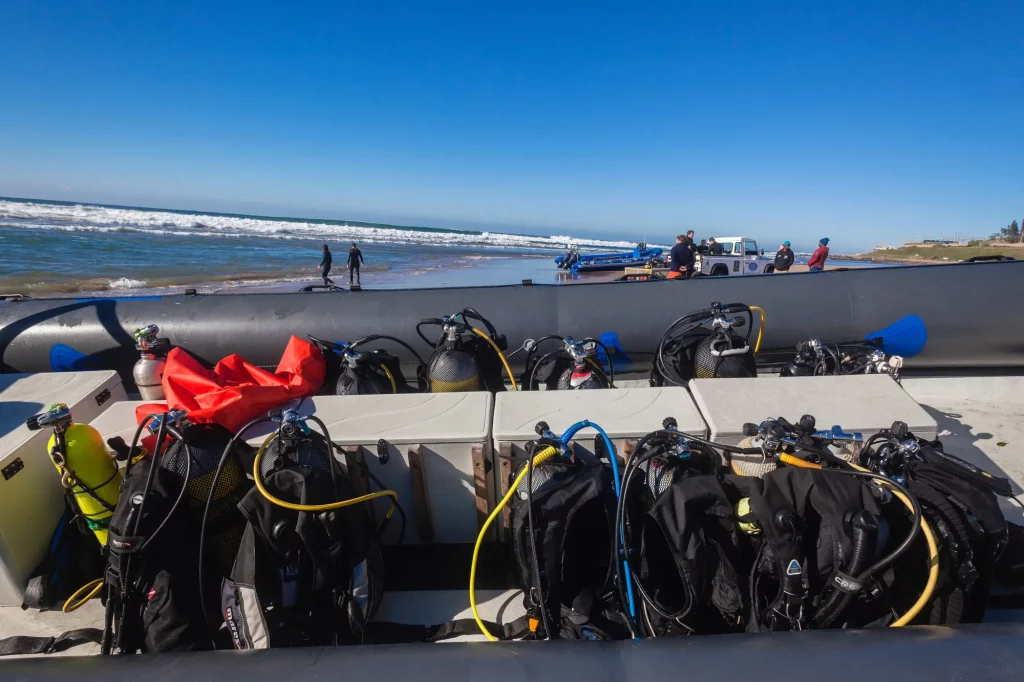
As divers, we are entranced by the beauty of our oceans. We dive to see things that other people have never seen and experience the ocean in a way that only a fraction of the world has ever experienced. Thus, becoming an eco diver is a no-brainer upgrade. If we want our oceans to prevail against climate change, pollution, overfishing, and other human-induced threats, we need to do our part in ensuring its sustainability and longevity for future generations.
Let’s find out what it means to be an eco diver, how to dive more sustainably, and the role of scuba diving within ecotourism!
What Is The Meaning of Eco Diving?
Practically, this consists of diving with minimal environmental impact, supporting conservation efforts, and actively participating in marine preservation.
These can include small individual actions that can range from saying no to single-use plastics to choosing to dive with eco-certified dive operators, or actions that require a bit more effort such as participating in citizen science projects, underwater and beach clean-ups, or signing up to be an ambassador for conservation groups to conduct educational talks or fundraisers, and raise awareness for marine conservation.
To eco dive and be an eco diver means to be mindful of our actions and their consequences on the marine environment. It is to make choices that contribute to making the ocean a better place, rather than just allowing it to exist for our pleasure while it stands alone against impending threats.

From Scuba Fanatic to Eco Diver
What’s the difference between a regular scuba diver and an eco-diver?
Here at The Reef and Shark Collective, we love how passionate the diving community is about the underwater world, the main difference would be in diving practices, and in undertaking further training to become a certified eco diver, or for a company to become an eco dive center.
DIVING PRACTICES
Regular Scuba Diver
May not always be aware of their impact on the environment. They might unintentionally harm marine life by touching corals or disturbing sediments.
Eco-Diver
Adopts sustainable diving practices such as:
Proper buoyancy control to avoid damaging reefs
Using eco-friendly sunscreen
Ensuring that no marine life is disturbed or fed
Follows guidelines to minimize their ecological footprint during and after dives.
TRAINING AND SKILLS
Regular Scuba Diver
Completes standard certification courses such as PADI Open Water Diver or Advanced Open Water Diver. Their training focuses on diving techniques, safety, and navigation.
Eco-Diver
Often undergoes additional training focused on environmental conservation. Programs like the Reef Check EcoDiver certification provide specialized skills in reef monitoring, species identification, and ecological impact assessments
Diving centers can join training programs offered by PADI and Green Fins. These will equip their staff with specialized skills in reef monitoring, species identification, and ecological impact assessments.
As for individuals, being mindful of what we consume, the gear we use, and the dive centers we pick to go diving with, are also ways of practicing eco-conscious diving.
Saying no to plastic straws in your juices and coconuts can save them from potentially winding up in the ocean and in the bellies of marine animals, and supporting responsible eco-friendly dive centers shows solidarity with environmentally sustainable establishments – which can encourage others to get involved with the eco diving movement and become more sustainable themselves.
Practicing diving techniques such as good buoyancy and spatial awareness so as not to make physical contact with marine life is a practice used by most scuba divers. These techniques ensure your safety from potentially harmful marine life that feels threatened and reacts, and also minimize reef damage and disruption of the natural environment. As ocean lovers, we should aim to make a minimal impact on the ocean.

Keeping up to date with marine conservation issues, attending educational talks, and having conversations about the importance of eco-friendly practices within scuba diving are all tasks of an eco diver. Ongoing education for ourselves and those around us is key to raising awareness about global issues, and can ultimately change the way we live, and contribute positively to our planet and the marine environment.
What’s The Difference Between Sustainable Diving and Eco Diving?
Sustainable diving encompasses a broader approach, including not only eco-friendly diving practices but also the overall sustainability of the diving industry. This includes aspects like reducing carbon footprints, using eco-friendly equipment, supporting local economies, and promoting sustainable tourism. Sustainable diving considers the long-term impact of diving activities on the environment and local communities.
Both are crucial for the ongoing effort to preserve our oceans and can complement each other effectively in promoting a healthier marine ecosystem.
Is Scuba Diving Ecotourism?
Ecotourism is a form of travel that aims to conserve the environment, leave it better than it was found, and support local economies and local communities. Scuba diving can be a form of ecotourism if practiced in the ways that we have mentioned above – mindfully and responsibly. By selecting dive operators who practice responsible diving, support local conservation projects, and adhere to established codes of conduct, scuba diving can indeed be a form of ecotourism.
Where Can I Experience Eco-Diving?

Here are 5 eco dive centers in the USA that emphasize sustainable diving practices and environmental conservation. This is by no means an exhaustive list, there are hundreds of eco dive centers worldwide, listed on PADI’s website.
Rainbow Reef Dive Center (Florida): This center is known for its commitment to coral conservation and maritime heritage survey tripr. It as recognized as a PADI Eco Center, and a Blue Star Operator by the by Florida Keys National Marine Sanctuary. Do check out their fun website too!
Hawaii Eco Divers (Oahu, Hawaii): This dive center combines eco-friendly practices with exceptional diving experiences. They focus on educating divers about marine conservation and sustainability, making them a PADI Eco Center recognized for their efforts in environmental stewardship
Eco Dive Center (California): With a focus on sustainable tourism and conservation, this center holds both PADI Eco Center and Green Fins certifications.
Stuart Cove’s Dive Bahamas (though based in the Bahamas, this center operates trips to the U.S. and adheres to Green Fins standards): Known for its strong conservation ethos and sustainable diving practices.
Pacific Wilderness (California): Recognized as a PADI Eco Center, this dive shop emphasizes eco-friendly practices and conservation education.
Final Thoughts
Eco diving is the future of our diving community. It ensures the sustainability of our marine ecosystems through responsible choices, practices, and awareness, whilst at the same time positively contributing to the economic and cultural sustainability of coastal communities.
We encourage all divers to consider integrating your passion with a strong commitment to conservation, specialized training, and practices that protect and preserve marine environments. You’ll join a community of like-minded individuals working towards a healthier ocean, making your diving experiences not only enjoyable but also purposeful.

1 thought on “Have You Tried Eco-Diving Yet? Discover What It Is And The Best Places To Do It (in the U.S.)”
Comments are closed.